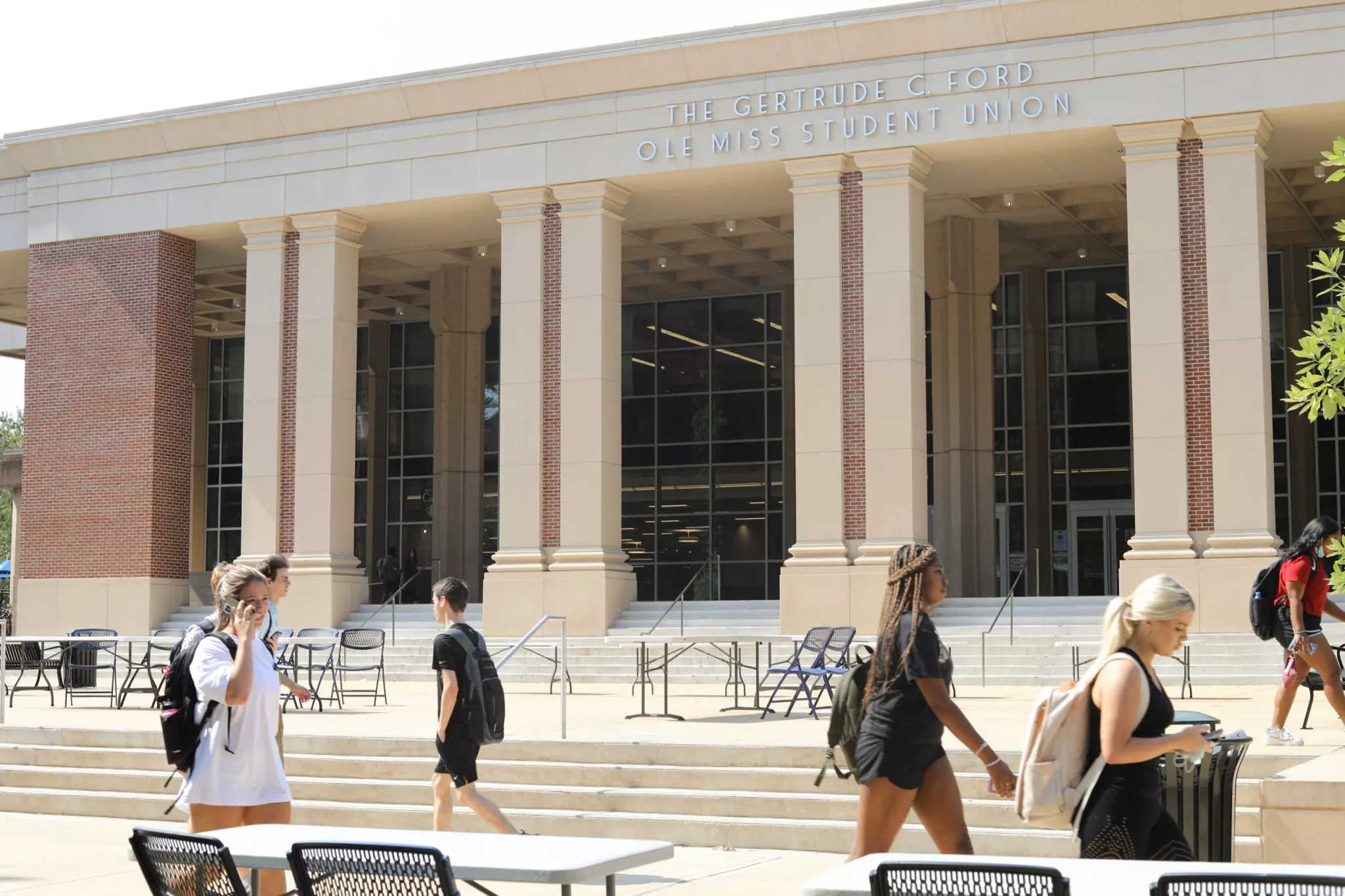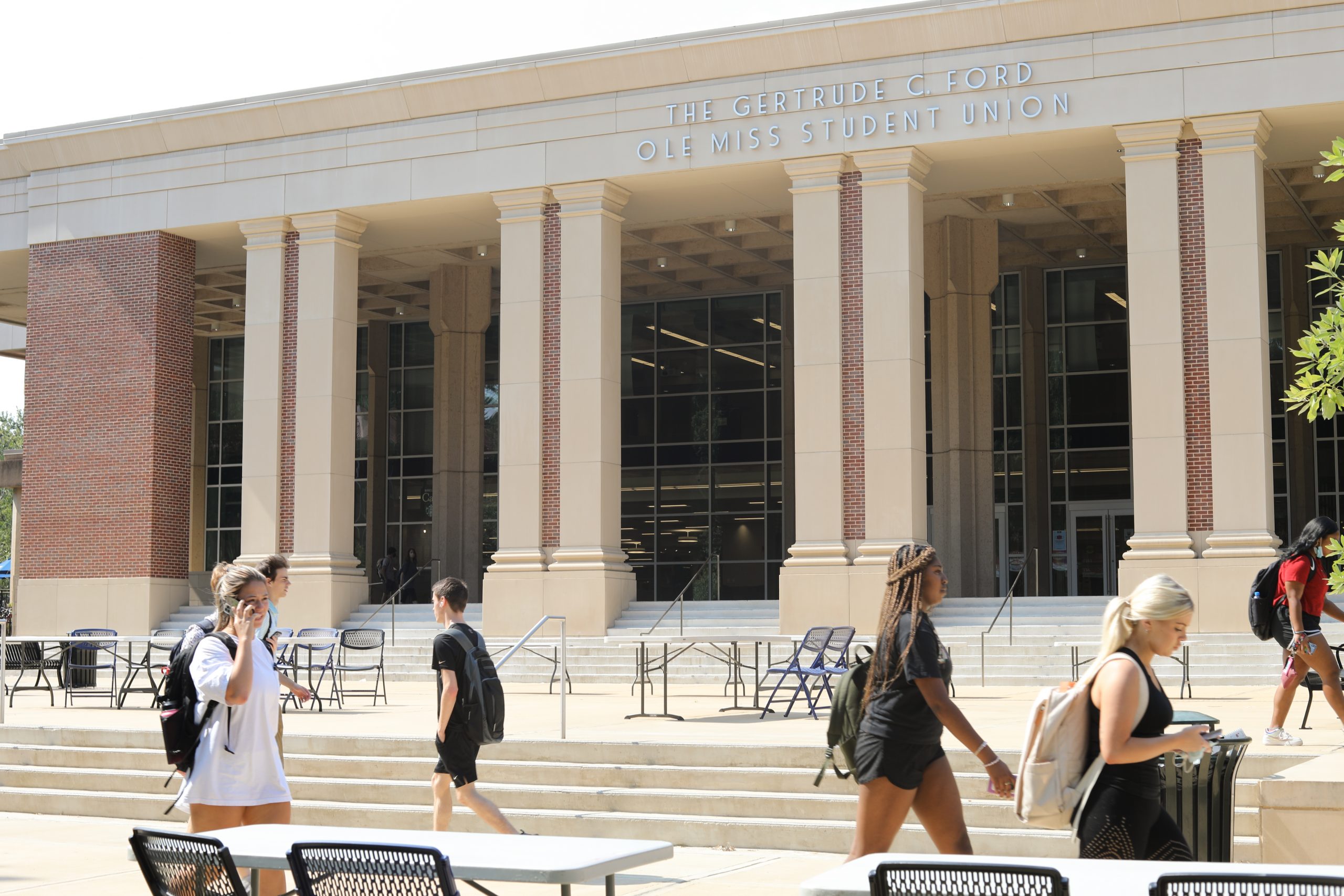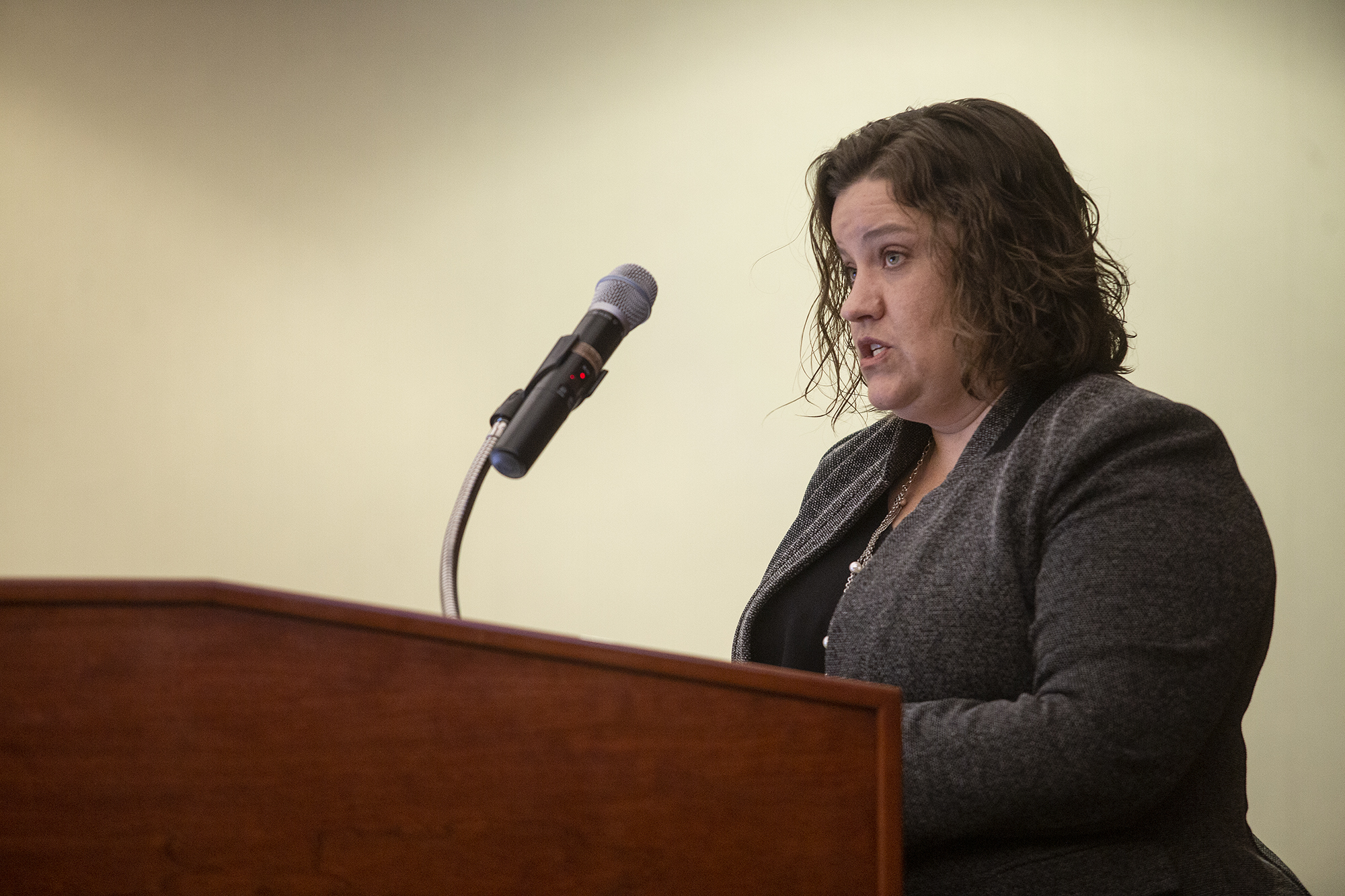Mississippi Today
‘No one is losing out’ in proposed college financial aid changes, board says


A new proposal would seek to more than double the number of Mississippians who are eligible for state financial aid by expanding one of the state’s undergraduate financial aid programs.
Under the as-yet-unnamed proposal, the award amounts of the Mississippi Tuition Assistance Grant – known as MTAG – would be increased to keep up with the skyrocketing cost of college, according to a presentation at the Postsecondary Education Financial Assistance Board on Monday.
The requirement to maintain a 2.5 GPA and a minimum score of 15 on the ACT would be eliminated. So would a provision that excludes students who are eligible for the federal Pell Grant. Right now, the maximum award under MTAG is up to $1,000 a year for college juniors and seniors, but the proposal would double or possibly even triple that depending on a student’s income.
All told, this would mean an estimated 37,800 Mississippians, including part-time, adult students who have long been excluded from receiving state money for college, would now be eligible for state financial aid. Right now, about 29,000 students receive state financial aid.

The goal would be to align MTAG, which hasn’t been updated since it was created in 1995, with other efforts to develop the state’s workforce by increasing the number of Mississippians with college degrees, said Jennifer Rogers, the director of the Office of Student Financial Aid.
As the number of high school graduates is set to decrease in Mississippi, Rogers said policy initiatives seeking to develop the state’s economy need to focus on adults who want to go back to college but can’t afford to on their own.
“This truly comes down to an economic development issue,” Rogers said. “How can we position the most people to have the best opportunity in the workforce in Mississippi? We’re not going to do that by just focusing on the traditional high school graduates that we’ve been focusing on since 1995.”
One thing makes this proposal different from many others that have tried but failed to get off the ground: No students would lose access to state financial aid if it became law.

“We wanted to first do no harm,” said Scott Waller, the president and CEO of the Mississippi Economic Council. “So anyone who is currently on the grant system receiving financial aid would continue to do so, and more importantly would continue to do so whatever the rate currently is.”
Past proposals have sought to limit, or shift, the amount of need-based state financial aid that is available for low-income students through the Higher Education Legislative Plan for Needy Students, or HELP grant, but that proved politically unpopular last session.
HELP is the state’s most expensive financial aid program, but also one of its most effective. It pays for all four years of college for students from families making less than $39,500.
“Obviously there doesn’t appear to be an appetite for wanting to make any changes to HELP,” said Jim McHale, the president and CEO of the Woodward Hines Education Foundation, which last year convened a taskforce of public officials who met in “confidence” to “explore how Mississippi’s student financial aid investments can be best leveraged to meet the economic development needs of the State.”
McHale said the new proposal comes out of a meeting the taskforce had this past August. He is hoping to use the fall to get feedback from key legislators and policymakers before introducing a final proposal closer to the session.
Toren Ballard, a K-12 policy expert with Mississippi First, said, because the new proposal does not create any “losers,” the biggest obstacle will be convincing lawmakers the cost is worth it.
“During the last session, you had people angry about HELP being cut, you had some people angry about rich kids losing access to MTAG and you still had to justify a higher overall price tag,” Ballard said. “You had all three of those things working against you. Now the only thing working against this plan is just the price tag, because no one is losing out.”
It’ll take an estimated $31 million to fund the increased award amounts to newly eligible students, according to the Monday presentation.
But the taskforce — armed with a Woodward Hines Education Foundation-supported study that shows the state could gain hundreds of millions of dollars in tax revenue and decreased social spending if it increases the number of Mississippians with postsecondary credentials — is planning to ask lawmakers to take the long view.
“It’ll ultimately grow our economy and in the long term pay for itself,” Waller said.
Jason Dean, the executive director of the Mississippi Association of Independent Colleges and Universities, said the investment in state financial aid is a form of “workforce development,” which is also “the message of the day.” Dean is a member of the taskforce and sits on the post-secondary board.
“Here’s the Jedi mind trick,” he said. “We’ve got to align our language to the language they’re espousing specifically around workforce training.”
MEC and Accelerate Mississippi, the state’s office of workforce development, conducted a statewide listening tour last year to create a strategic plan to increase the number of college graduates among working-aged Mississippians as part of the “Ascent to 55%” initiative.
“We’re never going to tell Mississippians not to go to college, not to attend community college and not to try to strive for educational attainment,” said Ryan Miller, Accelerate Mississippi’s executive director. “In fact it’s going to be the opposite.”
So far, key leaders in the state’s higher education system seem to be on board.
At the postsecondary board meeting Monday, Mark Keenum, a board member and the president of Mississippi State University whose thoughts on state financial aid have helped shape prior proposals, said he had heard from MEC leadership.
“This is a high priority for the business community in the state to provide more funding for financial aid to increase our educational attainment for our state workforce, and I like it,” Keenum said. “I like it a lot.”
Tyrone Jackson, a board member and the president of Mississippi Delta Community College, didn’t voice an opinion on the proposal but confirmed with Rogers that it would not result in students losing financial aid.
Though the taskforce is not proposing any changes to HELP, Rogers told the post-secondary board on Monday that the state financial aid office plans to separately request largely administrative changes to the grant.
That would entail opening up HELP’s code section, which could result in more substantive amendments during the legislative session.
“I fully understand the danger of opening a code section when you don’t have to,” she said.
Editor’s note: The Woodward Hines Education Foundation is a Mississippi Today donor.
This article first appeared on Mississippi Today and is republished here under a Creative Commons license.
Mississippi Today
Speaker White wants Christmas tree projects bill included in special legislative session

House Speaker Jason White sent a terse letter to Lt. Gov. Delbert Hosemann on Thursday, saying House leaders are frustrated with Senate leaders refusing to discuss a “Christmas tree” bill spending millions on special projects across the state.
The letter signals the two Republican leaders remain far apart on setting an overall $7 billion state budget. Bickering between the GOP leaders led to a stalemate and lawmakers ending their regular 2025 session without setting a budget. Gov. Tate Reeves plans to call them back into special session before the new budget year starts July 1 to avoid a shutdown, but wants them to have a budget mostly worked out before he does so.
White’s letter to Hosemann, which contains words in all capital letters that are underlined and italicized, said that the House wants to spend cash reserves on projects for state agencies, local communities, universities, colleges, and the Mississippi Department of Transportation.
“We believe the Senate position to NOT fund any local infrastructure projects is unreasonable,” White wrote.
The speaker in his letter noted that he and Hosemann had a meeting with the governor on Tuesday. Reeves, according to the letter, advised the two legislative leaders that if they couldn’t reach an agreement on how to disburse the surplus money, referred to as capital expense money, they should not spend any of it on infrastructure.
A spokesperson for Hosemann said the lieutenant governor has not yet reviewed the letter, and he was out of the office on Thursday working with a state agency.
“He is attending Good Friday services today, and will address any correspondence after the celebration of Easter,” the spokesperson said.
Hosemann has recently said the Legislature should set an austere budget in light of federal spending cuts coming from the Trump administration, and because state lawmakers this year passed a measure to eliminate the state income tax, the source of nearly a third of the state’s operating revenue.
Lawmakers spend capital expense money for multiple purposes, but the bulk of it — typically $200 million to $400 million a year — goes toward local projects, known as the Christmas Tree bill. Lawmakers jockey for a share of the spending for their home districts, in a process that has been called a political spoils system — areas with the most powerful lawmakers often get the largest share, not areas with the most needs. Legislative leaders often use the projects bill as either a carrot or stick to garner votes from rank and file legislators on other issues.
A Mississippi Today investigation last year revealed House Ways and Means Chairman Trey Lamar, a Republican from Sentobia, has steered tens of millions of dollars in Christmas tree spending to his district, including money to rebuild a road that runs by his north Mississippi home, renovate a nearby private country club golf course and to rebuild a tiny cul-de-sac that runs by a home he has in Jackson.
There is little oversight on how these funds are spent, and there is no requirement that lawmakers disburse the money in an equal manner or based on communities’ needs.
In the past, lawmakers borrowed money for Christmas tree bills. But state coffers have been full in recent years largely from federal pandemic aid spending, so the state has been spending its excess cash. White in his letter said the state has “ample funds” for a special projects bill.
“We, in the House, would like to sit down and have an agreement with our Senate counterparts on state agency Capital Expenditure spending AND local projects spending,” White wrote. “It is extremely important to our agencies and local governments. The ball is in your court, and the House awaits your response.”
This article first appeared on Mississippi Today and is republished here under a Creative Commons Attribution-NoDerivatives 4.0 International License.
Mississippi Today
Advocate: Election is the chance for Jackson to finally launch in the spirit of Blue Origin

Editor’s note: This essay is part of Mississippi Today Ideas, a platform for thoughtful Mississippians to share fact-based ideas about our state’s past, present and future. You can read more about the section here.
As the world recently watched the successful return of Blue Origin’s historic all-women crew from space, Jackson stands grounded. The city is still grappling with problems that no rocket can solve.
But the spirit of that mission — unity, courage and collective effort — can be applied right here in our capital city. Instead of launching away, it is time to launch together toward a more just, functioning and thriving Jackson.
The upcoming mayoral runoff election on April 22 provides such an opportunity, not just for a new administration, but for a new mindset. This isn’t about endorsements. It’s about engagement.
It’s a moment for the people of Jackson and Hinds County to take a long, honest look at ourselves and ask if we have shown up for our city and worked with elected officials, instead of remaining at odds with them.
It is time to vote again — this time with deeper understanding and shared responsibility. Jackson is in crisis — and crisis won’t wait.
According to the U.S. Census projections, Jackson is the fastest-shrinking city in the United States, losing nearly 4,000 residents in a single year. That kind of loss isn’t just about numbers. It’s about hope, resources, and people’s decision to give up rather than dig in.
Add to that the long-standing issues: a crippled water system, public safety concerns, economic decline and a sense of division that often pits neighbor against neighbor, party against party and race against race.
Mayor Chokwe Antar Lumumba has led through these storms, facing criticism for his handling of the water crisis, staffing issues and infrastructure delays. But did officials from the city, the county and the state truly collaborate with him or did they stand at a distance, waiting to assign blame?
On the flip side, his runoff opponent, state Sen. John Horhn, who has served for more than three decades, is now seeking to lead the very city he has represented from the Capitol. Voters should examine his legislative record and ask whether he used his influence to help stabilize the administration or only to position himself for this moment.
Blaming politicians is easy. Building cities is hard. And yet that is exactly what’s needed. Jackson’s future will not be secured by a mayor alone. It will take so many of Jackson’s residents — voters, business owners, faith leaders, students, retirees, parents and young people — to move this city forward. That’s the liftoff we need.
It is time to imagine Jackson as a capital city where clean, safe drinking water flows to every home — not just after lawsuits or emergencies, but through proactive maintenance and funding from city, state and federal partnerships. The involvement of the U.S. Environmental Protection Agency in the effort to improve the water system gives the city leverage.
Public safety must be a guarantee and includes prevention, not just response, with funding for community-based violence interruption programs, trauma services, youth job programs and reentry support. Other cities have done this and it’s working.
Education and workforce development are real priorities, preparing young people not just for diplomas but for meaningful careers. That means investing in public schools and in partnerships with HBCUs, trade programs and businesses rooted right here.
Additionally, city services — from trash collection to pothole repair — must be reliable, transparent and equitable, regardless of zip code or income. Seamless governance is possible when everyone is at the table.
Yes, democracy works because people show up. Not just to vote once, but to attend city council meetings, serve on boards, hold leaders accountable and help shape decisions about where resources go.
This election isn’t just about who gets the title of mayor. It’s about whether Jackson gets another chance at becoming the capital city Mississippi deserves — a place that leads by example and doesn’t lag behind.
The successful Blue Origin mission didn’t happen by chance. It took coordinated effort, diverse expertise and belief in what was possible. The same is true for this city.
We are not launching into space. But we can launch a new era marked by cooperation over conflict, and by sustained civic action over short-term outrage.
On April 22, go vote. Vote not just for a person, but for a path forward because Jackson deserves liftoff. It starts with us.
Pauline Rogers is a longtime advocate for criminal justice reform and the founder of the RECH Foundation, an organization dedicated to supporting formerly incarcerated individuals as they reintegrate into society. She is a Transformative Justice Fellow through The OpEd Project Public Voices Fellowship.
This article first appeared on Mississippi Today and is republished here under a Creative Commons Attribution-NoDerivatives 4.0 International License.![]()
Mississippi Today
On this day in 1959, students marched for integrated schools

April 18, 1959

About 26,000 students took part in the Youth March for Integrated Schools in Washington, D.C. They heard speeches by Martin Luther King Jr., A. Phillip Randolph and NAACP leader Roy Wilkins.
In advance of the march, false accusations were made that Communists had infiltrated the group. In response, the civil rights leaders put out a statement: “The sponsors of the March have not invited Communists or communist organizations. Nor have they invited members of the Ku Klux Klan or the White Citizens’ Council. We do not want the participation of these groups, nor of individuals or other organizations holding similar views.”
After the march, a delegation of students went to present their demands to President Eisenhower, only to be told by his deputy assistant that “the president is just as anxious as they are to see an America where discrimination does not exist, where equality of opportunity is available to all.”
King praised the students, saying, “In your great movement to organize a march for integrated schools, you have awakened on hundreds of campuses throughout the land a new spirit of social inquiry to the benefit of all Americans.”
This article first appeared on Mississippi Today and is republished here under a Creative Commons Attribution-NoDerivatives 4.0 International License.![]()
-

 News from the South - Arkansas News Feed7 days ago
News from the South - Arkansas News Feed7 days agoMeasles cases confirmed in Arkansas children after travel exposure
-

 News from the South - Alabama News Feed7 days ago
News from the South - Alabama News Feed7 days agoImpacts of Overdraft Fees | April 11, 2025 | News 19 at 10 p.m.
-

 Mississippi Today5 days ago
Mississippi Today5 days agoOn this day in 1873, La. courthouse scene of racial carnage
-

 News from the South - Georgia News Feed7 days ago
News from the South - Georgia News Feed7 days ago1-on-1 with Gov. Kemp’s Senior Advisor | Full interview
-

 News from the South - Missouri News Feed7 days ago
News from the South - Missouri News Feed7 days agoMom and son targeted in carjackings, stolen cars crime spree
-

 Local News6 days ago
Local News6 days agoAG Fitch and Children’s Advocacy Centers of Mississippi Announce Statewide Protocol for Child Abuse Response
-

 Local News5 days ago
Local News5 days agoSouthern Miss Professor Inducted into U.S. Hydrographer Hall of Fame
-

 News from the South - Arkansas News Feed7 days ago
News from the South - Arkansas News Feed7 days agoFederal investigators looking into cause of deadly NYC helicopter crash












































